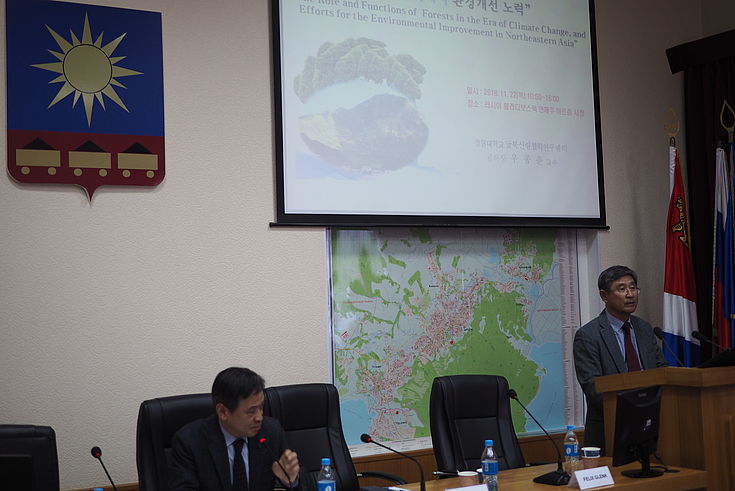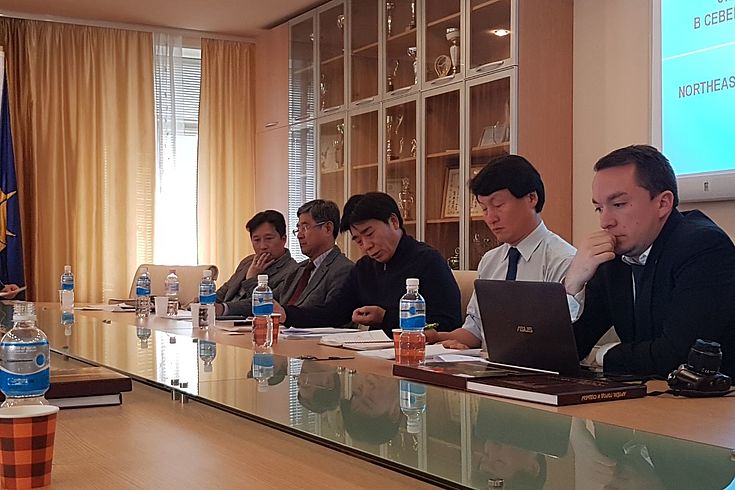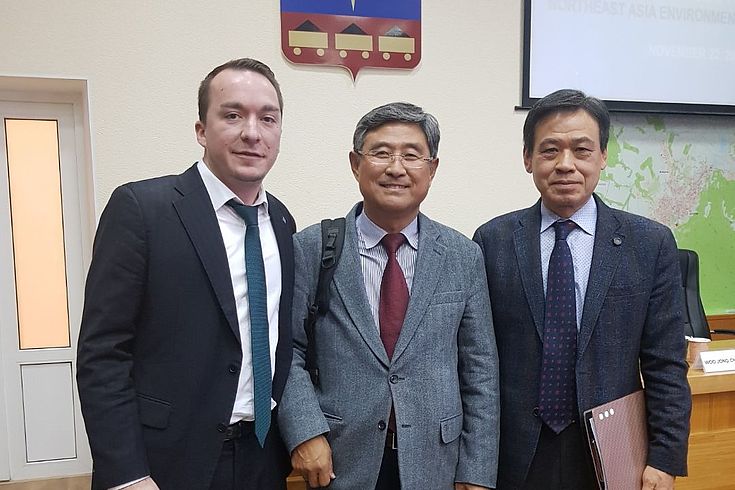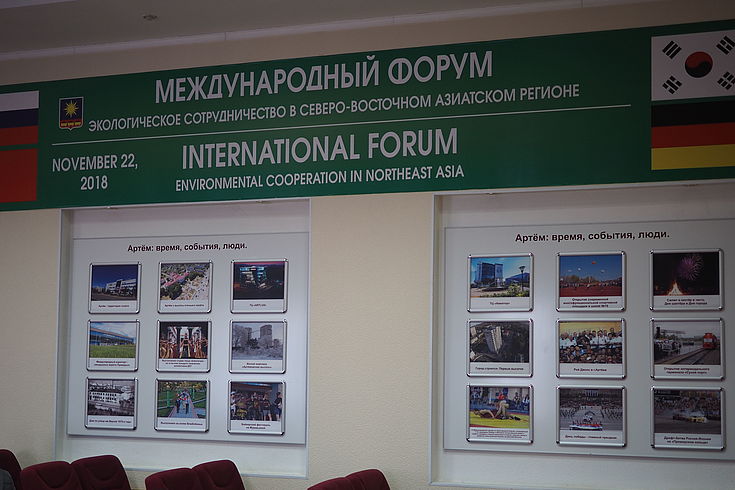Seminar
Peace on the Korean Peninsula through Protection of the Environment
Participants of the Environmental Cooperation Seminar in Vladivostok
HSS
The seminar was opened with a speech by Dr. Shin Young-Seok, who is the Chairman of the Institute for Peace Affairs. He addressed the current rapprochement on the Korean Peninsula and the wish for a peaceful future. The vice-mayor of Artyom, Den Gan Gun, hosted the seminar and welcomed all participants during his remarks. Young-Soo Kim, Project Manager of HSF Korea, gave the keynote address replacing Dr. Bernhard Seliger, Representative of HSF Korea who couldn´t attend the seminar. He spoke about sustainable cross-border development in the “Golden Triangle” between Russia, China and Korea. He pointed out that “wherever countries meet, and borders exist, there are restrictions of movements of people and goods, but also opportunities for trade and exchange”. In his speech he also introduced challenges that exist in all three bordering countries in the region regarding the balance between economic development and environmental conservation, and the opportunities that the unique biodiversity in the border region upholds.

Presentation by Prof. Woo Jongchoon on the current Status and Tasks of Environmental Cooperation Governance in Northeast Asia
HSS
The first session dealt with environmental cooperation and economic development in Northeast Asia. Prof. Woo Jongchoon from the Kangwon National University introduced the current status and tasks of environmental cooperation governance as well as the history of reforestation in South Korea. South Korean forests have been deteriorated after the Japanese colonialization and the Korean War. In 1967 the Korea Forest Service was created, and the first 10-year reforestation plan was established. On account of a national campaign as well as collective efforts these actions lead to an elevenfold increase in forest resources until today. Interestingly in the early 2010s, in North Korea a similar campaign was launched. As deforestation in the DPR Korea is still a major problem, it is currently an essential area for discussions about cooperation between North and South Korea to take place. Prof. Woo, once being educated himself in Germany, also emphasized the importance of international support e.g. from Germany regarding afforestation efforts back in the 1970s in South Korea and today in North Korea.
Felix Glenk, Project Manager of DPR Korea at HSF Korea, with Prof. Woo Jongchoon of Kangwon National University
HSS
The second session explored the chances for a restoration of the environment and a sustainable development in North Korea. Felix Glenk, Project Manager for DPRK at HSF, introduced the projects of the foundation and lessons learned from the work in North Korea over the last 15 years. HSF has been implementing a project on sustainable afforestation to improve the living conditions in rural areas in the country with funds by the European Union. Additionally, the Foundation has supported the integration of North Korea into international environmental networks, which led to the accession of North Korea to the UN Ramsar Convention on Wetlands of International Importance and to the East Asian – Australasian Flyway Partnership, as well as the membership of the Ministry of Environment and Land Protection to the International Union for the Conservation of Nature. Within these frameworks and networks, room for discussions and joint efforts with international partners, especially in Northeast Asia, can be used to tackle environmental challenges as a global task.
Poster of the Environmental Cooperation Seminar in Vladivostok
HSS
Comprehensive discussions about environmental conservation took place in the afternoon, so that representatives from South Korea, China and Russia were able to explore ways to enhance it in their respective regions and beyond borders. One focus addressed the transboundary ecosystem between Rason Migratory Bird Reserve and the wetlands on the other side of the border located in Russia and China. In this regard North Korea has been the first country to designate a protected area. Additionally, there is a significant potential to designate a joint transboundary protected area in the future, as it is the only way to sustainably protect the entire ecosystem. This would also be beneficial for the population living in the area, which heavily relies on the ecosystem services of the wetlands and it would also give a platform for exchange and cooperation between the countries bordering the “Golden Triangle”.



